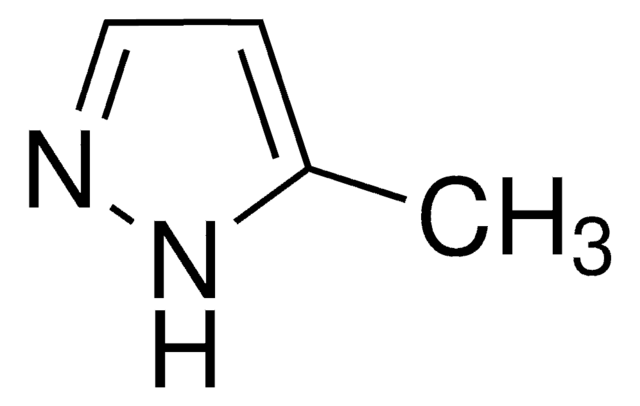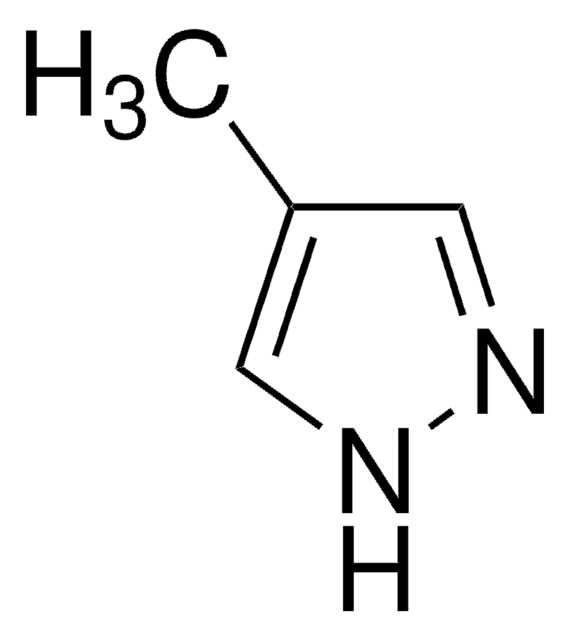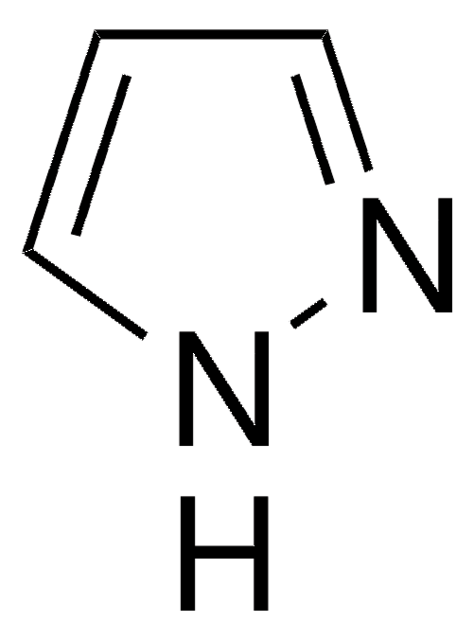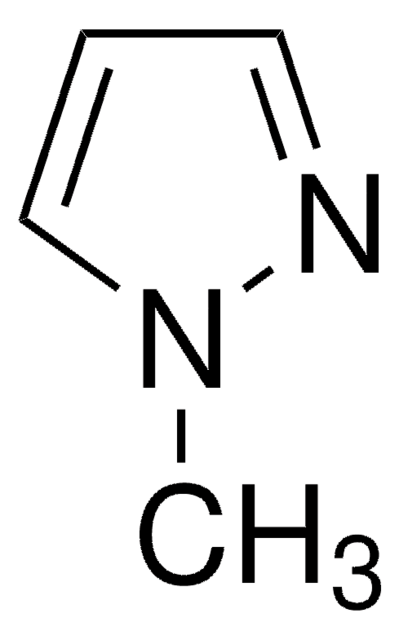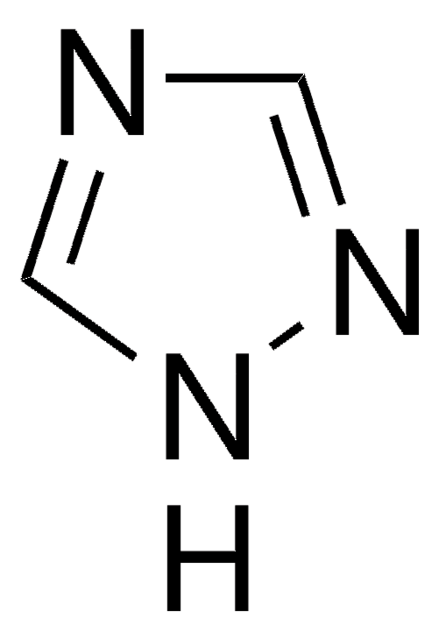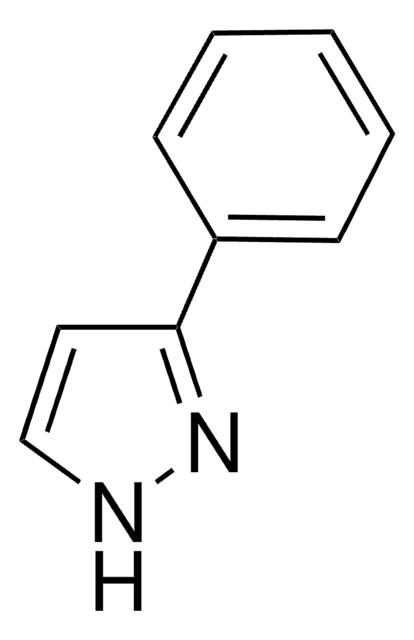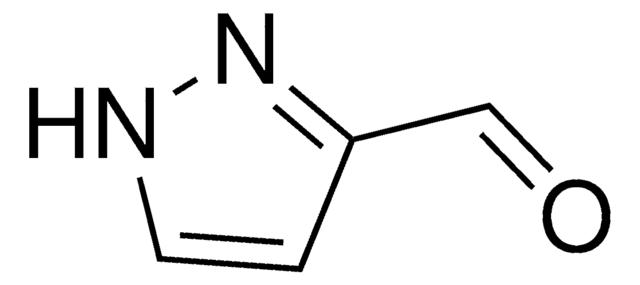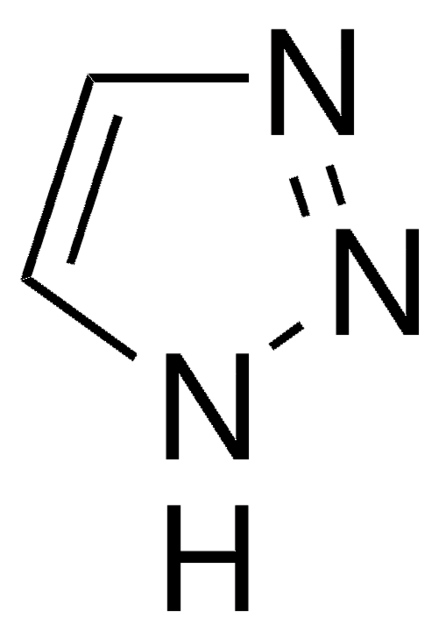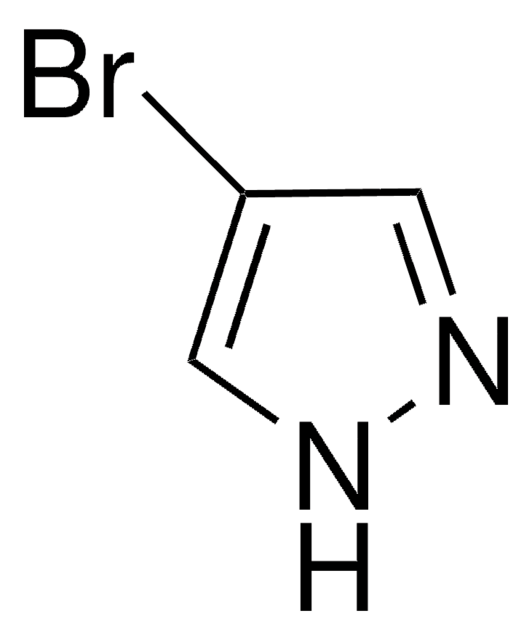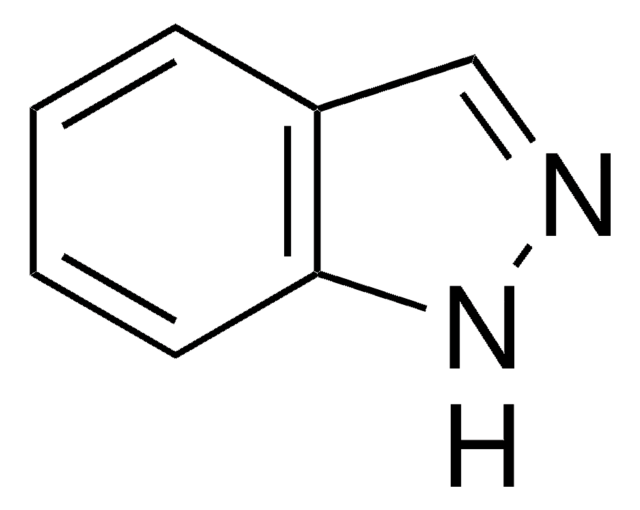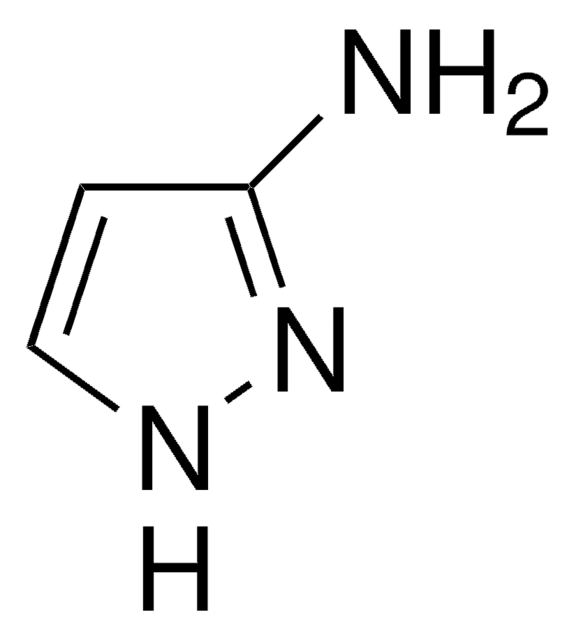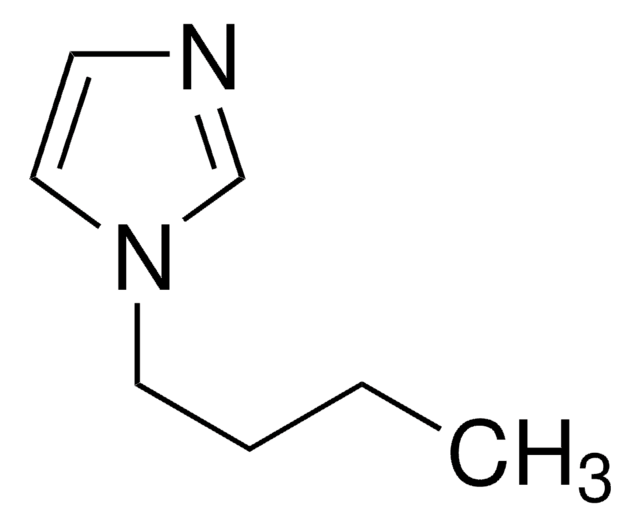About This Item
Recommended Products
Quality Level
Assay
97%
form
liquid
refractive index
n20/D 1.495 (lit.)
bp
204 °C (lit.)
density
1.02 g/mL at 25 °C (lit.)
SMILES string
Cc1cc[nH]n1
InChI
1S/C4H6N2/c1-4-2-3-5-6-4/h2-3H,1H3,(H,5,6)
InChI key
XKVUYEYANWFIJX-UHFFFAOYSA-N
Looking for similar products? Visit Product Comparison Guide
Signal Word
Danger
Hazard Statements
Precautionary Statements
Hazard Classifications
Acute Tox. 4 Oral - Eye Dam. 1 - Repr. 1B - Skin Corr. 1B - STOT RE 2
Target Organs
Lungs
Storage Class Code
6.1C - Combustible acute toxic Cat.3 / toxic compounds or compounds which causing chronic effects
WGK
WGK 2
Flash Point(F)
218.3 °F - closed cup
Flash Point(C)
103.5 °C - closed cup
Personal Protective Equipment
Regulatory Listings
Regulatory Listings are mainly provided for chemical products. Only limited information can be provided here for non-chemical products. No entry means none of the components are listed. It is the user’s obligation to ensure the safe and legal use of the product.
FSL
Group 4: Flammable liquids
Type 3 petroleums
Hazardous rank III
Water insoluble liquid
JAN Code
M75802-25G:
M75802-5G:
M75802-VAR:
M75802-BULK:
Choose from one of the most recent versions:
Already Own This Product?
Find documentation for the products that you have recently purchased in the Document Library.
Customers Also Viewed
Our team of scientists has experience in all areas of research including Life Science, Material Science, Chemical Synthesis, Chromatography, Analytical and many others.
Contact Technical Service